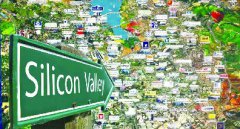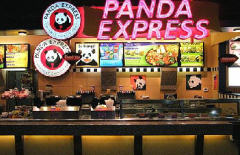周末 无意间在朋友圈看到有人转了一篇英文报道,发帖的朋友义愤填膺,赶紧找到了《赫芬顿邮报》(The Huffington Post)的这篇原文,读完了真是让人大跌眼镜。
从未看过这么上档次的美国华人窝里斗的文章,不带一个脏字却把所有身在美国的中国新移民们骂了个体无完肤,最绝的是作者是一位美国知名华裔法学教授,Frank H. Wu,吴华扬,就职于加州大学黑斯廷法学院。
这篇文章题目叫做:《写给美国亚裔社会活动家们的关于新移民的一封私信》(A Private Note to Asian American Activists About New Arrivals)。
读了题目就让人没有好感,明明是发布在公开媒体上的一篇文章,却偏说自己是封私信(Private Note),真Zuo!
这篇文章行文很阴险,初看以为是作者想要帮助初来乍到美国的新移民群体、主要要是亚裔群体、更具体的说是中国人提高社会觉悟、更好地参与到民主活动中来,结果却不断感受到了作者的恶意,文章写到中间居然脸都不要了,直接撕下面具代表所谓的美国社会亚裔/华裔精英阶层站在绝对制高点恶意攻击新来美国的中国移民群体。
新移民怨恨老移民?

开篇先说明“我这篇文章是写给美国民权活动家们的”,表现出同理心想说在美国针对亚裔群体搞开展民权活动特别不容易,因为生活在美国的亚裔们“有些总是抱怀疑态度,有些充满敌意”。
看完第一段有点惊讶,这位在美国法律教育界摸爬滚打了多年,被任职学院授衔“杰出教授”(Distinguished Professor)怎么逻辑如此简单粗暴,一句话就把美国亚裔分成了两拨,而且两拨都听上去都不怎么样。
第一段读完,差评!

第二段马上进入重点,那些来自中国的新移民们总不和我们玩,我们的民权活动、推动社会进步的活动他们都不参加,所以我恳求大家,请倾听他们的声音,试着去说服他们吧!
这段好像是真诚地让美国的民权活动家们走近华人群体,去倾听新移民的心声。

无论我走到美国的什么地方、无论是西海岸还是东海岸,都遇到中国新移民在向我抱怨“他们很困惑,觉得自己在这个国家没有被平等对待”。他们的愤怒不仅针对的是美国的白人和黑人,他们看起来对在美国已经同化程度更高的、自视是美国亚裔的人们也很生气。
“是否被公平对待”这个问题在美国的讨论从未停止,这其中涉及到种族、性别、地域、行业,方方面面,不仅只有身在美国的中国人有这种情绪。
当然,吴教授的这篇文章是在讨论华人新移民的问题,所以OK没问题,请继续讨论,结果他笔锋一转,干起了挑事儿的勾当,指责华人新移民对土生土长的美国亚裔心生怨恨,按照他之前的行文逻辑捋下去,难道吴教授你是说“华人新移民受到各种不公平待遇的罪魁祸首是美国亚裔”???

他们(中国新移民群体)觉得:我们(土生土长的美国亚裔群体)不能代表他们,我们不够同情他们,我们背叛了他们,我们甚至不能用他们认为理应是属于我们通用的语言和他们交流。虽然普通话(Mandarin)是他们的全国性语言,但我发现在美国参加活动时他们更喜欢使用台山之类的方言。
吴教授想得真是多!请问我们这些所谓的“中国新移民群体”为什么需要你来代表?你来同情?我们之间又曾有过何等关联值得你冒天下之大不韪来背叛我们?
还有吴教授为什么要攻击中国普通话和方言呢?我们中国每个地方都有属于自己的语言,台山话是公认的美国华侨社区里最常用的方言之一,如果在美国遇到老乡说两句方言不是人之常情吗?这里面的逻辑是什么、吴教授又有什么言外之意呢?这里实在没看懂,请看懂的小伙伴赐教...

很讽刺,对于我们来说他们特别亚洲,对于他们来说我们特别美国,我们其实并不是一类人,等孩子长大也没用。
真相是我们是不同的,他们来自于正在上升的亚洲,感谢现代科技他们和他们的祖国依旧保持着密切联系。他们并不把自己当做亚洲人,他们是按照种族、宗族、信仰、环境来区分自己的,所以把自己视作美国人。
有句话你说的是对的,我们的确不是一类人,你是美国人,我们怎么变心底还是中国人,我们从未一厢情愿的硬要挤入你笔下的美国亚裔群体中,更别提摇身变成你笔下的美国人,而如果我们要是真的挤了你一定还觉得我们高攀不上,所以请放心我们本来也不想“高攀”!你也不用着急和我们撇清关系,因为我们从未否我们之间存在的差异。
吴教授,你能笃定写出“中国来的新移民觉得自己是美国人”这句话的根据到底从何而来?
不知道吴教授家是什么背景,如果他不是二代、三代移民出身,以他这样的“奇才”应该可以十几岁、二十几岁来到美国一下飞机就立即变身典型美国亚裔成员,完全不需要时间融合,你真棒!
粗鄙的中国新移民

我们彼此之于对方都是外国人,尽管别人说我们长得相似,他们也乐得利用我们的谦虚,尽管我们可以随时否认。那些哪怕稍稍早些到达这里的新移民,耀武扬威地好像他们比自己还身在中国的亲戚更加优秀。可实际上呢?他们过分的珠光宝气、没有秩序、抠鼻孔、随地吐痰、车开的差、喜欢在背后使坏,让我们希望他们至少不吃狗肉。
这段对来自中国的新移民们的指责又达到了一个新高度,一方面说中国移民“鱼目混珠”,仗着脸和美国亚裔长得一样就冒充是他们的一员;另一方面又显示出这两个群体有多么不同,他笔下的新来的中国移民是如此粗鄙庸俗。
别以为写到这里吴教授对中国新移民的羞辱就结束了,比这威力更大的轰击还一轮接一轮地跟在后面。

上来先撇清一下,这段评价不是我吴教授一个人说的,是众多美国民权活动家对中国新移民的评价:一些新移民不在乎民主,他们觉得自己比其他肤色的人种优秀,因为这一点太明显了所以他们都懒得指出来,他们甚至认为他们将会优于白人。
在美国生活了这些年,从来只听说白人有莫名其妙的优越感,还真没听闻吴教授的这番理论,读了这篇文章也真是开了眼!
他们才刚刚开始表达自己的主张,他们并未表现出传统上对亚裔的刻板印象,他们开始攻击,从高等教育到非法移民问题、再到LGBT权利、警察执法暴力,一次又一次地他们站在美国亚裔支持的对立面,他们甚至觉得自己因为吃鱼翅、濒危动物而遭受压迫。短末还嘲笑一下新移民的口音:他们带着口音的英语也没能阻止他们。
读到这里我终于明白了,这并非是写给什么美国民权运动家的一封信,也不是为了唤起新移民的民主意识,而是借文章赤裸裸地攻击与自己持不同政见的所谓“新移民”,因为这些异见者可能恰巧是晚于吴教授移民到这个国家的,于是就被扣上了“新移民”的大帽子,而所有初来乍到美国的中国移民也被一起打死了。
本来是抱着“想了解老华裔移民如何看待新移民”的初衷开始阅读的文章,现在看来真是浪费时间,文末吴教授还给出了两条所谓美国亚裔应该接受新移民的理由,归结一下就是“虽然我们不情愿,但他们人多势众,为了自己将来不会被挤出去所以还得将就着带他们玩一玩”。
自己 才是亘古 靠自己, 不变的真理
《赫芬顿邮报》是个左媒,能在这里看到这篇文章还以为进错了网站,可能是我肤浅、没文化,读不出吴教授的一片苦心。好奇去扒了一下吴教授的履历,发现吴教授可不是一般人。

吴教授在加州大学官网公布的简历长达九页,哈佛、哥伦比亚、斯坦福、乔治-华盛顿、约翰-霍普金斯、加州大学,这些美国名校里都留下了他的任教痕迹,他甚至还在北京大学跨国法律研究中心成立初期担任教授。
除此之外,吴教授还是美国华裔精英组织百人会(Committee of 100)的会长,百人会的入会资格十分严格,必须由会员推荐,并要经过所有会员的严格审核才能被接纳,李开复、杨致远、贝聿铭、马友友、骆家辉都是其著名成员。
这么一位有地位、有威望的法学教授,却写出了一篇充斥着“他们”与“我们”的恶意挑衅文章,“他们”是粗鄙的中国新移民群体,“我们”是吴教授心中的真正亚裔精英群体,他如此“精分”和在自己文章里批评的新移民按“种族、宗教”划分族群又有何区别?文章看似想探究新移民在美国民权活动中的行为根源,但最后因为吴教授实在站得太高只能写成了一篇逻辑堪忧的谩骂之文。
写这篇文章的目的并不是要攻击吴教授个人,而是想让大家看清楚,有些所谓冲在社会活动第一线的、天天宣扬民主民权的精英阶层未必真的可以代表一整个群体,或许他们真的能力不足,也或许他们根本没把你当自己人,那有何来的代表同一族群共同发声呢?
所以还得落在那句老话上:生活在美国的移民群体,应该自己靠自己,尽可能多地参与到当地社会活动中来,自己为自己发声,别让所谓的吴教授、X教授稀里糊涂地就把我们都代表了!
英文原文:
A Private Note To Asian-American Activists About New Arrivals
Frank H. Wu
I write to you as my long-time friends, those who have fought not only for civil rights but also to include Asian Americans in all progressive causes. I know from working alongside you that it has not been easy to persuade African Americans, Latinos, Jews, and others who have been dedicated to social justice that their principles extend to Asian immigrants and their American-born children and grandchildren. Some have been skeptical, others hostile. Yet I send you a note now to express a different concern. It is as sensitive if not more so, but it also is even more serious a potential barrier to your bridge building efforts. It could signal the end of the project altogether.
Here it is. The most recent set of newcomers from Asia, in particular those arriving from China, do not share our commitments. I implore you to reach out, to listen to them respectfully, and to try to persuade them. That requires that you — and I — not assume they need educating by us, as if we were self-appointed teachers, they permanently students. They will have none of that. They have experienced it enough.
Everywhere I encounter them, whether in suburban Southern California; the “Avenues” of western San Francisco; Silicon Valley; on the East Coast; or in communities that have developed seemingly overnight where there once were virtually no Asian faces to be seen, they complain. They are frustrated. I am familiar with the source of that sentiment: the literal historic exclusion and the tangible ongoing denial of equality.
But here is what worries me. While I have hesitated to call out the problem, waiting makes it worse. They seem to be as angry about Asian Americans, those who call themselves by that name and who are more assimilated, as they are about whites and blacks. They tell me so.
We do not represent them, We are not sympathetic to them. We have betrayed them. We cannot even communicate in the language they deem ours. One of the common words for “Mandarin” in Mandarin itself translates as “the national language” ― though I am advised they’d prefer a dialect such as Toisan in any event.
The greatest ironies are always in the mirror image. To us, they are very Asian. To them, we are very American. We are not quite one another’s people. Waiting for the kids to grow up won’t work. (Yes, more than one of you has said that, only partly in jest.)
The truth is we are different. They come from an ascendent Asia. They can continue to maintain contacts with “the homeland,” thanks to technology. They identify, as our forebears did, not as “Asian,” but by their ethnicity, clan, province, religion, and circumstances. They are American on their own terms.
We are as foreign to them as they are to us, despite others telling us we all look alike. And they are aware of our condescension, even if we would deny it. As with other groups of every color and creed, those who settled, if only slightly earlier, invariably imply they are better than their country cousins. As much as the phrase is appropriated and ironic, even hip, there is a stigma to being “fresh off the boat.” The stereotype is repeated: too much bling, not enough lining up in an orderly manner; nose-picking, spitting, bad driving, passive-aggressive conduct, and, let us hope, at least no dog-eating.
I do not doubt, and you have explained to me privately your concerns with which I do not disagree. Some of our cousins, distant kin who have shown up here, are alarming. They are bigots who do not care about democracy. They believe themselves to be better than other people of color, it hardly is worth pointing out since it is so obvious. They even suppose, not all that secretly, that they will surpass whites. They also might be corrupt albeit by our standards. There is no telling.
They are only starting to assert themselves. They do not claim disadvantage. Just the opposite. They attack, as Asians are not stereotyped for doing. On issue after issue, ranging from diversity in higher education to “illegal” immigration to LGBT rights to police brutality to corporal punishment to capital punishment, they are prepared to line up as a token Asian face on the other side of whatever protest you are organizing. Even on the environment, they feel persecuted for their taste for shark fin soup or exotic delicacies involving endangered species. And good for them. Their accent does not hold them back.
I have heard Asian Americans who have urged civic engagement lament that they find themselves surrounded by Asians who will stand up and speak out, albeit for themselves. A mascot for your opponent, they will be only more infuriated if you suggest they are pawns being used. They sense your embarrassment. They are self-serving for survival.
Be that as it may, I offer two reasons that are compelling enough. I am convinced anyway, to embrace them. It need not be “us” versus “them,” especially since others cannot distinguish.
The first reason is what we say. We talk about how important it is to sustain coalitions. We fought for a “seat at the table.” It would be wrong for us to be any less than wholeheartedly welcoming to those who look like us. We have to give them space too. We would be hypocrites otherwise. If we do not yield, we will be shoved aside. There is room for all, or so we ourselves proclaim.
The second reason is strategic. There are more of them than there are of us. They keep coming. The majority of Asian Americans are foreign-born, not native born. Immigration patterns ensure that this demographic balance of power will favor the former over the latter, at least for our lifetimes. If we do not win them over, or ally with them, they will overtake us numerically and render us irrelevant politically.
If Asian Americans want the concept of “Asian American” to last another generation, we must figure out how to engage with all who belong to an artificial, fragile category. The failure of the movement will be “on us,” to use the vernacular we must speak.
We must come together.
从未看过这么上档次的美国华人窝里斗的文章,不带一个脏字却把所有身在美国的中国新移民们骂了个体无完肤,最绝的是作者是一位美国知名华裔法学教授,Frank H. Wu,吴华扬,就职于加州大学黑斯廷法学院。
这篇文章题目叫做:《写给美国亚裔社会活动家们的关于新移民的一封私信》(A Private Note to Asian American Activists About New Arrivals)。
读了题目就让人没有好感,明明是发布在公开媒体上的一篇文章,却偏说自己是封私信(Private Note),真Zuo!
这篇文章行文很阴险,初看以为是作者想要帮助初来乍到美国的新移民群体、主要要是亚裔群体、更具体的说是中国人提高社会觉悟、更好地参与到民主活动中来,结果却不断感受到了作者的恶意,文章写到中间居然脸都不要了,直接撕下面具代表所谓的美国社会亚裔/华裔精英阶层站在绝对制高点恶意攻击新来美国的中国移民群体。
新移民怨恨老移民?

开篇先说明“我这篇文章是写给美国民权活动家们的”,表现出同理心想说在美国针对亚裔群体搞开展民权活动特别不容易,因为生活在美国的亚裔们“有些总是抱怀疑态度,有些充满敌意”。
看完第一段有点惊讶,这位在美国法律教育界摸爬滚打了多年,被任职学院授衔“杰出教授”(Distinguished Professor)怎么逻辑如此简单粗暴,一句话就把美国亚裔分成了两拨,而且两拨都听上去都不怎么样。
第一段读完,差评!

第二段马上进入重点,那些来自中国的新移民们总不和我们玩,我们的民权活动、推动社会进步的活动他们都不参加,所以我恳求大家,请倾听他们的声音,试着去说服他们吧!
这段好像是真诚地让美国的民权活动家们走近华人群体,去倾听新移民的心声。

无论我走到美国的什么地方、无论是西海岸还是东海岸,都遇到中国新移民在向我抱怨“他们很困惑,觉得自己在这个国家没有被平等对待”。他们的愤怒不仅针对的是美国的白人和黑人,他们看起来对在美国已经同化程度更高的、自视是美国亚裔的人们也很生气。
“是否被公平对待”这个问题在美国的讨论从未停止,这其中涉及到种族、性别、地域、行业,方方面面,不仅只有身在美国的中国人有这种情绪。
当然,吴教授的这篇文章是在讨论华人新移民的问题,所以OK没问题,请继续讨论,结果他笔锋一转,干起了挑事儿的勾当,指责华人新移民对土生土长的美国亚裔心生怨恨,按照他之前的行文逻辑捋下去,难道吴教授你是说“华人新移民受到各种不公平待遇的罪魁祸首是美国亚裔”???

他们(中国新移民群体)觉得:我们(土生土长的美国亚裔群体)不能代表他们,我们不够同情他们,我们背叛了他们,我们甚至不能用他们认为理应是属于我们通用的语言和他们交流。虽然普通话(Mandarin)是他们的全国性语言,但我发现在美国参加活动时他们更喜欢使用台山之类的方言。
吴教授想得真是多!请问我们这些所谓的“中国新移民群体”为什么需要你来代表?你来同情?我们之间又曾有过何等关联值得你冒天下之大不韪来背叛我们?
还有吴教授为什么要攻击中国普通话和方言呢?我们中国每个地方都有属于自己的语言,台山话是公认的美国华侨社区里最常用的方言之一,如果在美国遇到老乡说两句方言不是人之常情吗?这里面的逻辑是什么、吴教授又有什么言外之意呢?这里实在没看懂,请看懂的小伙伴赐教...

很讽刺,对于我们来说他们特别亚洲,对于他们来说我们特别美国,我们其实并不是一类人,等孩子长大也没用。
真相是我们是不同的,他们来自于正在上升的亚洲,感谢现代科技他们和他们的祖国依旧保持着密切联系。他们并不把自己当做亚洲人,他们是按照种族、宗族、信仰、环境来区分自己的,所以把自己视作美国人。
有句话你说的是对的,我们的确不是一类人,你是美国人,我们怎么变心底还是中国人,我们从未一厢情愿的硬要挤入你笔下的美国亚裔群体中,更别提摇身变成你笔下的美国人,而如果我们要是真的挤了你一定还觉得我们高攀不上,所以请放心我们本来也不想“高攀”!你也不用着急和我们撇清关系,因为我们从未否我们之间存在的差异。
吴教授,你能笃定写出“中国来的新移民觉得自己是美国人”这句话的根据到底从何而来?
不知道吴教授家是什么背景,如果他不是二代、三代移民出身,以他这样的“奇才”应该可以十几岁、二十几岁来到美国一下飞机就立即变身典型美国亚裔成员,完全不需要时间融合,你真棒!
粗鄙的中国新移民

我们彼此之于对方都是外国人,尽管别人说我们长得相似,他们也乐得利用我们的谦虚,尽管我们可以随时否认。那些哪怕稍稍早些到达这里的新移民,耀武扬威地好像他们比自己还身在中国的亲戚更加优秀。可实际上呢?他们过分的珠光宝气、没有秩序、抠鼻孔、随地吐痰、车开的差、喜欢在背后使坏,让我们希望他们至少不吃狗肉。
这段对来自中国的新移民们的指责又达到了一个新高度,一方面说中国移民“鱼目混珠”,仗着脸和美国亚裔长得一样就冒充是他们的一员;另一方面又显示出这两个群体有多么不同,他笔下的新来的中国移民是如此粗鄙庸俗。
别以为写到这里吴教授对中国新移民的羞辱就结束了,比这威力更大的轰击还一轮接一轮地跟在后面。

上来先撇清一下,这段评价不是我吴教授一个人说的,是众多美国民权活动家对中国新移民的评价:一些新移民不在乎民主,他们觉得自己比其他肤色的人种优秀,因为这一点太明显了所以他们都懒得指出来,他们甚至认为他们将会优于白人。
在美国生活了这些年,从来只听说白人有莫名其妙的优越感,还真没听闻吴教授的这番理论,读了这篇文章也真是开了眼!
他们才刚刚开始表达自己的主张,他们并未表现出传统上对亚裔的刻板印象,他们开始攻击,从高等教育到非法移民问题、再到LGBT权利、警察执法暴力,一次又一次地他们站在美国亚裔支持的对立面,他们甚至觉得自己因为吃鱼翅、濒危动物而遭受压迫。短末还嘲笑一下新移民的口音:他们带着口音的英语也没能阻止他们。
读到这里我终于明白了,这并非是写给什么美国民权运动家的一封信,也不是为了唤起新移民的民主意识,而是借文章赤裸裸地攻击与自己持不同政见的所谓“新移民”,因为这些异见者可能恰巧是晚于吴教授移民到这个国家的,于是就被扣上了“新移民”的大帽子,而所有初来乍到美国的中国移民也被一起打死了。
本来是抱着“想了解老华裔移民如何看待新移民”的初衷开始阅读的文章,现在看来真是浪费时间,文末吴教授还给出了两条所谓美国亚裔应该接受新移民的理由,归结一下就是“虽然我们不情愿,但他们人多势众,为了自己将来不会被挤出去所以还得将就着带他们玩一玩”。
自己 才是亘古 靠自己, 不变的真理
《赫芬顿邮报》是个左媒,能在这里看到这篇文章还以为进错了网站,可能是我肤浅、没文化,读不出吴教授的一片苦心。好奇去扒了一下吴教授的履历,发现吴教授可不是一般人。

吴教授在加州大学官网公布的简历长达九页,哈佛、哥伦比亚、斯坦福、乔治-华盛顿、约翰-霍普金斯、加州大学,这些美国名校里都留下了他的任教痕迹,他甚至还在北京大学跨国法律研究中心成立初期担任教授。
除此之外,吴教授还是美国华裔精英组织百人会(Committee of 100)的会长,百人会的入会资格十分严格,必须由会员推荐,并要经过所有会员的严格审核才能被接纳,李开复、杨致远、贝聿铭、马友友、骆家辉都是其著名成员。
这么一位有地位、有威望的法学教授,却写出了一篇充斥着“他们”与“我们”的恶意挑衅文章,“他们”是粗鄙的中国新移民群体,“我们”是吴教授心中的真正亚裔精英群体,他如此“精分”和在自己文章里批评的新移民按“种族、宗教”划分族群又有何区别?文章看似想探究新移民在美国民权活动中的行为根源,但最后因为吴教授实在站得太高只能写成了一篇逻辑堪忧的谩骂之文。
写这篇文章的目的并不是要攻击吴教授个人,而是想让大家看清楚,有些所谓冲在社会活动第一线的、天天宣扬民主民权的精英阶层未必真的可以代表一整个群体,或许他们真的能力不足,也或许他们根本没把你当自己人,那有何来的代表同一族群共同发声呢?
所以还得落在那句老话上:生活在美国的移民群体,应该自己靠自己,尽可能多地参与到当地社会活动中来,自己为自己发声,别让所谓的吴教授、X教授稀里糊涂地就把我们都代表了!
英文原文:
A Private Note To Asian-American Activists About New Arrivals
Frank H. Wu
I write to you as my long-time friends, those who have fought not only for civil rights but also to include Asian Americans in all progressive causes. I know from working alongside you that it has not been easy to persuade African Americans, Latinos, Jews, and others who have been dedicated to social justice that their principles extend to Asian immigrants and their American-born children and grandchildren. Some have been skeptical, others hostile. Yet I send you a note now to express a different concern. It is as sensitive if not more so, but it also is even more serious a potential barrier to your bridge building efforts. It could signal the end of the project altogether.
Here it is. The most recent set of newcomers from Asia, in particular those arriving from China, do not share our commitments. I implore you to reach out, to listen to them respectfully, and to try to persuade them. That requires that you — and I — not assume they need educating by us, as if we were self-appointed teachers, they permanently students. They will have none of that. They have experienced it enough.
Everywhere I encounter them, whether in suburban Southern California; the “Avenues” of western San Francisco; Silicon Valley; on the East Coast; or in communities that have developed seemingly overnight where there once were virtually no Asian faces to be seen, they complain. They are frustrated. I am familiar with the source of that sentiment: the literal historic exclusion and the tangible ongoing denial of equality.
But here is what worries me. While I have hesitated to call out the problem, waiting makes it worse. They seem to be as angry about Asian Americans, those who call themselves by that name and who are more assimilated, as they are about whites and blacks. They tell me so.
We do not represent them, We are not sympathetic to them. We have betrayed them. We cannot even communicate in the language they deem ours. One of the common words for “Mandarin” in Mandarin itself translates as “the national language” ― though I am advised they’d prefer a dialect such as Toisan in any event.
The greatest ironies are always in the mirror image. To us, they are very Asian. To them, we are very American. We are not quite one another’s people. Waiting for the kids to grow up won’t work. (Yes, more than one of you has said that, only partly in jest.)
The truth is we are different. They come from an ascendent Asia. They can continue to maintain contacts with “the homeland,” thanks to technology. They identify, as our forebears did, not as “Asian,” but by their ethnicity, clan, province, religion, and circumstances. They are American on their own terms.
We are as foreign to them as they are to us, despite others telling us we all look alike. And they are aware of our condescension, even if we would deny it. As with other groups of every color and creed, those who settled, if only slightly earlier, invariably imply they are better than their country cousins. As much as the phrase is appropriated and ironic, even hip, there is a stigma to being “fresh off the boat.” The stereotype is repeated: too much bling, not enough lining up in an orderly manner; nose-picking, spitting, bad driving, passive-aggressive conduct, and, let us hope, at least no dog-eating.
I do not doubt, and you have explained to me privately your concerns with which I do not disagree. Some of our cousins, distant kin who have shown up here, are alarming. They are bigots who do not care about democracy. They believe themselves to be better than other people of color, it hardly is worth pointing out since it is so obvious. They even suppose, not all that secretly, that they will surpass whites. They also might be corrupt albeit by our standards. There is no telling.
They are only starting to assert themselves. They do not claim disadvantage. Just the opposite. They attack, as Asians are not stereotyped for doing. On issue after issue, ranging from diversity in higher education to “illegal” immigration to LGBT rights to police brutality to corporal punishment to capital punishment, they are prepared to line up as a token Asian face on the other side of whatever protest you are organizing. Even on the environment, they feel persecuted for their taste for shark fin soup or exotic delicacies involving endangered species. And good for them. Their accent does not hold them back.
I have heard Asian Americans who have urged civic engagement lament that they find themselves surrounded by Asians who will stand up and speak out, albeit for themselves. A mascot for your opponent, they will be only more infuriated if you suggest they are pawns being used. They sense your embarrassment. They are self-serving for survival.
Be that as it may, I offer two reasons that are compelling enough. I am convinced anyway, to embrace them. It need not be “us” versus “them,” especially since others cannot distinguish.
The first reason is what we say. We talk about how important it is to sustain coalitions. We fought for a “seat at the table.” It would be wrong for us to be any less than wholeheartedly welcoming to those who look like us. We have to give them space too. We would be hypocrites otherwise. If we do not yield, we will be shoved aside. There is room for all, or so we ourselves proclaim.
The second reason is strategic. There are more of them than there are of us. They keep coming. The majority of Asian Americans are foreign-born, not native born. Immigration patterns ensure that this demographic balance of power will favor the former over the latter, at least for our lifetimes. If we do not win them over, or ally with them, they will overtake us numerically and render us irrelevant politically.
If Asian Americans want the concept of “Asian American” to last another generation, we must figure out how to engage with all who belong to an artificial, fragile category. The failure of the movement will be “on us,” to use the vernacular we must speak.
We must come together.

 相关文章
相关文章



 精彩导读
精彩导读




 热门资讯
热门资讯 关注我们
关注我们
